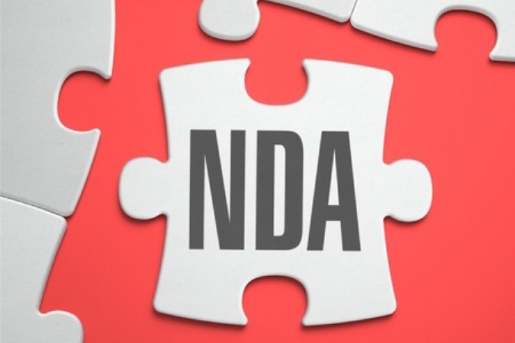
The confidentiality of information is relevant to everyone. However, it is more significant to inventors or creators especially IT companies, who are in the business of creating or inventing unique programs and product.
Most commercial relationships are accompanied by an agreement on confidentiality of information between the employer and employee, the nature and purpose of an NDA are important to the agreement of the contract between both parties (or more).
What is a Nondisclosure Agreement?
A Non Disclosure Agreement (NDA) can also be known as a confidential disclosure agreement (CDA) or a proprietary information agreement (PIA), it is a legal contract creating a relationship between at least two parties outlining the confidentiality of an information, knowledge or material that parties share (or may share) with one another for certain purposes, but decide to restrict access of the information by third parties. An example is an attorney-client privilege or banker client privilege and many more.
The purpose of an NDA is to protect sensitive information (avoid information leaks), classifies exclusive and confidential information. In a case of intellectual property rights, it helps the inventors keep patent rights. Many non-disclosure agreements contain confidentiality clauses that prevent the receiving party from benefiting in any way from the disclosure, except as specifically permitted under the agreement.
ypes of Non-Disclosure Agreement
-
The types of Non-Disclosure agreement include:
- Unilateral
A unilateral NDA involves two parties where a party (disclosing) sets terms to the disclosure of certain information to the other party (receiving) and requires that the information be protected from further disclosure for some reason (e.g. patent laws or legal protection for trade secrets, limiting disclosure of information for a major announcement, or simply ensuring that a receiving party does not disclose vital information without compensating the disclosing party).
- Bilateral
A bilateral NDA (sometimes referred to as a mutual NDA or a two-way NDA) involves two parties where both parties anticipate disclosing information to one another that each intends to protect from further disclosure. An example is a merger and so on.
-
Multilateral
A multilateral NDA involves three or more parties where at least one of the parties anticipates disclosing information to the other parties and requires that the information be protected from further disclosure. This type of NDA eliminates the need for separate unilateral or bilateral NDA between only two parties.
What Happens if an NDA is breached?
-
The expected consequences of violating an NDA depends on the situation, as in some cases, nothing may happen but in a whole other scenario, the damages could be devastating to both parties involved. Termination of employment from current job, minimal consideration for prospective offers, obligatory restitution of the stolen information’s value (additional fines as well) are some other consequences of breaching an NDA.
-
Instances involving a breach of contract may include complete disregard on the path of the receiving party, the use of information relating to commercial secrets by third parties for their interests, unfair agreement (The disclosing party has an advantage), and the dissemination of data ignorantly by former employees also violates a legal confidentiality agreement. Most of the time, any dissatisfied counterparty or employee will be willing to violate the confidentiality of that information, both for personal gain and damage to the company’s identity, these lead to great losses for the company (in this case, the IT-company).
Legal Review of Your Confidentiality Agreement
-
First, the leading lawyers of Law and Trust will audit the existing confidentiality statement with your counterparties, employees or any other person who has access to the relevant information. Furthermore, our team develops an individual plan for the implementation of a trade secret regime, drafts an NDA for each subject matter involved in the relationship to meet the objectives and goals of our client.
-
The legal review helps our clients to keep the facts of the information, prevent the illegal use of this information, apply sanctions and pay damages in any case where the NDA is violated. A Non-Disclosure agreement can be presented both in the form of an agreement on mutual non-disclosure of confidential information, and nothing more than a unilateral settlement on non-disclosure of classified information.
Writing a Non-Disclosure Agreement
- Determination of the subject matter of the agreement, i.e. clearly define the information to be protected;
- The exchange of information and ways to protect it, including encryption;
- Review the term of the agreement after the end of a period (the time period should be clearly stated) between the parties;
- The indictment penalty applied on a contractual basis;
- Signing an NDA before the start of cooperation;
- The Agreed upon purpose (obligations) of the relationship;
- Select and indicate the required jurisdiction.
-
Our lawyers are readily available to prepare a non-disclosure agreement for your company if you’re planning to establish a relationship or you have an established one with partners.




























































